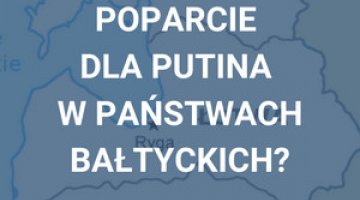Centre-left government forms government in Lithuania
On 12 December, Lithuania’s unicameral parliament (Seimas) swore in a new government led by Gintautas Paluckas, vice-chair of the Social Democratic Party (LSDP). The coalition also includes the Union of Democrats “For Lithuania” (DSVL), led by former prime minister Saulius Skvernelis, and the populist Dawn of Nemunas (PPNA), led by Remigijus Žemaitaitis. Together, they hold a majority of 86 out of 141 seats, ensuring the government can implement its agenda and maintain stability.
In the new cabinet, the Social Democrats were allocated nine ministerial positions, PPNA three, and DSVL two. The government’s agenda was approved by 85 of the 127 MPs present, with support coming mainly from coalition members. The opposition, consisting of Conservatives and Liberals who had recently lost power, was divided: 14 centre-right MPs voted against the agenda. The remaining 28 MPs abstained, including members of the Lithuanian Farmers and Greens Union and the Electoral Action of Poles in Lithuania – Christian Families Alliance. Saulius Skvernelis, leader of the Democrats, was appointed Speaker of the Seimas.
Commentary
- The government’s primary objective is to address social inequalities. The new cabinet has committed to increasing citizens’ wages, combating inflation, and introducing more progressive taxation. Planned initiatives include raising the tax-free allowance and redistributing budgetary funds to enhance access to housing and education, as well as high-quality healthcare for families. Additionally, the government aims to introduce a regional development policy to address disparities between central and peripheral regions. The opposition has called these plans into question, arguing that the resources available in the state budget will be insufficient to implement these objectives. Furthermore, the prime minister has not disclosed which groups are likely to bear the burden of new taxes to secure the required funding.
- The Paluckas government will continue the foreign and defence policies of its predecessors, pledging support for Ukraine until it achieves EU and NATO membership. Furthermore, the new prime minister plans to go on his first visit to Kyiv as a gesture of solidarity. Lithuania plans to advocate for NATO and EU allies to uphold sanctions on Russia while focusing on strengthening security and energy ties with the United States. Additionally, it seeks to reinforce its strategic partnership with Germany by pushing for the deployment of a German brigade by 2027 and ensuring the continued rotational presence of a US military battalion.
- China is emerging as an increasingly significant political challenge for Lithuania. The government views the Russo-Chinese partnership and the expanding influence of both nations in Belarus as strategic threats. For Lithuania, maintaining a unified stance among EU and NATO member states on China is of critical importance. Furthermore, the government remains committed to strengthening economic and cultural ties with Taiwan.
- Poland will remain a strategic partner for Lithuania, particularly in implementing key transport infrastructure projects such as Via Baltica and Rail Baltica, as well as energy initiatives. These include synchronising the Baltic states’ power grids with those of continental Europe and constructing the Harmony Link interconnector to facilitate commercial electricity exchange with Poland. While the government has pledged to address long-standing issues affecting national minorities, it has not clarified whether it plans to amend the law adopted in November this year, which lacks significant provisions to improve their situation.
- The greatest controversy surrounding the government is the fact that the PPNA has been accepted as a coalition partner. Its leader, Remigijus Žemaitaitis, is known for antisemitic remarks which have provoked protests not only from the local Jewish community but also from Lithuania’s key allies, the United States and Germany. Žemaitaitis, has been accused of antisemitism; however, this does not appear to have significantly impacted his public support. According to a Baltijos tyrimai poll conducted on 2 December he is viewed favourably by 52% of respondents, while 36%hold an unfavourable opinion. Žemaitaitis remains the most popular parliamentary party leader, whereas Prime Minister Paluckas is among the least recognised politicians, with 20% of respondents admitting they do not know who he is.
- President Gitanas Nausėda has demonstrated a clear ambition to influence the government and its policies. While maintaining positive relations with the Social Democrats, he blocked Žemaitaitis from nominating his party members for ministerial positions, exercising his constitutional authority to approve the cabinet's composition. Consequently, the PPNA leader was compelled to nominate non-partisan candidates to head the ministries of justice and environment. The president has also strengthened his influence over the Ministry of Foreign Affairs, with Paluckas agreeing to appoint the non-partisan Kęstutis Budrys as its leader. Budrys, who has served as a chief security advisor to Nausėda since 2022 and was previously a civil intelligence official, is expected to enhance the president’s control over ambassadorial appointments and the ministry’s policies.
Appendix 1. The new prime minister’s biography
Gintautas Paluckas (born in 1979 in Panevėžys) studied mathematics and computer science. After graduating, he joined the Social Democratic Party (LSDP) and, in 2005, became an assistant to Justas Vincas Paleckis, a Social Democratic MEP. From 2007 to 2009, he served as the director of Vilnius City Municipality Administration. His rise within the party began in 2013 when he was appointed secretary and became a member of the LSDP Council and Board. Between 2015 and 2019, he served as Deputy Mayor of Vilnius. In 2017, he was elected party chair, leading the LSDP in the 2020 parliamentary elections. However, the party performed below expectations, losing four seats and securing only 13, with the Conservatives winning the election. Following this defeat, Paluckas resigned as party leader. In 2021, Vilija Blinkevičiūtė became the new party chair and led the LSDP to victory in the October 2024 parliamentary elections. Despite earlier statements, she declined the premiership and nominated Paluckas for the role. Many voters perceived this as a betrayal, given his failure to secure a seat in a single-member constituency. His nomination also attracted criticism from the opposition. Outgoing Prime Minister Ingrida Šimonytė argued that Paluckas lacked sufficient experience in executive governance and highlighted his conviction by the Supreme Court in 2012 for procurement abuses in public tenders. Paluckas remains one of Lithuania’s wealthiest politicians, with assets estimated to exceed €2.13 million.
Appendix 2. Members of the Gintautas Paluckas cabinet
Social Democratic Party nominees:
1. Minister of Finance – Rimantas Šadžius
2. Minister of National Defence – Dovilė Šakalienė
3. Minister of Transport and Communications – Eugenijus Sabutis
4. Minister of Education, Science, and Sport – Raminta Popovienė
5. Minister of Health – Marija Jakubauskienė
6. Minister of Foreign Affairs – Kęstutis Budrys
7. Minister of the Interior – Władysław Kondratowicz (Vladislav Kondratovič in Lithuanian spelling)
8. Minister of Culture – Šarūnas Birutis
9. Minister of Social Security and Labour – Inga Ruginienė
Dawn of Nemunas nominees:
1. Minister of the Environment – Povilas Poderskis
2. Minister of Agriculture – Ignas Hofmanas
3. Minister of Justice – Rimantas Mockus
Union of Democrats “For Lithuania” nominees:
1. Minister of the Economy and Innovation – Lukas Savickas
2. Minister of Energy – Žygimantas Vaičiūnas




